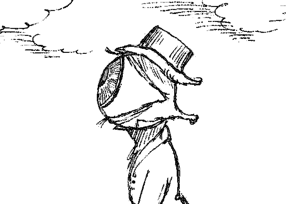This an excerpt from the book Generative Energy by Raymond Peat. I find it useful to reference when asked questions such as “how can someone with high credentials miss such important facts?”
Several years ago I was thinking about the different levels of ability among famous painters of history, and I read about the family origins of some of them; the painters that I considered to have the best ability turned out to have come from poor families, in which skill in a craft was accepted as the way to earn a living. The bad--but famous--painters had "noble" origins, in which there was no tradition of skilled work. Painters who were "insiders," familiar with the attitudes of the rich who paid for the pictures, knew what things would flatter, what things were fashionable, and what would contribute to prestige. The people from a lower class, however, had to be very skilled at painting if they were to succeed.I think this illustrates something general about truth. A person’s vitality is drawn forward by meaningful work, that is, we grow to meet the demands of an important opportunity. Frans Hals’ paintings could only have been done by an alert mind, and one which had been alert for a long time learning the skills of drawing and painting. That skill revealed a large amount of truth. On the other hand, from Rubens we don’t learn much except that rich people ate well and dreamed of grandiosity.
William Morris said, “It is workmen only and not pedants who can produce real and vigorous art.” I think something similar should be said for science. While some people explore and solve important problems, others do not explore, and even reject solutions to problems when they are made available by the workers who produced them.
One of my recurring objects of thought has been the slowness with which raw knowledge is assimilated. For example, I have been thinking about Broda Barnes’s work on the prevention of heart disease with thyroid extract. He did solve much of “the riddle of heart attacks,” but recent statements by the Heart Association show that the dominant forces in the health business haven’t learned anything at all from his work, which be began 50 years ago. His work is clearly presented, not hard to understand, and it is scientifically so sound that no one challenges it, at least not on the scientific level. It is ignored, rejected by people who choose not to be bothered to read it. How many people have died from heart disease, since his work first became available?
I suggest that the resistance to Barnes’s discoveries (and to nutritional therapies, etc.) has this explanation: that the health business is a Rubens-equivalent. There may be a family tradition of practicing medicine, but the child experiences family status long before he can experience the work of healing or the learning of special skills. Rather than an apprenticeship, it more closely resembles inherited nobility. Consider the character of most of the people who choose the profession, their motives, the way they are instructed, the meaning of truth in their lives.
But a few individuals within the profession live their lives for a different purpose, or cluster of purposes. They don’t choose their problems in the way most likely to draw the fa- vor of the powerful. Rather, there seems to be a need to un- derstand, to take actions which lead toward the truth. I suspect that an “apprenticeship” has somehow been served in most of these cases.
Seen from a distance, it may seem that such people know in advance where the truth is, so they can proceed in the right direction. Deep involvement in the problem, investment of some of your life in the work, reveals that the truth is everywhere, and is clarified and arranged through the technical actions of the worker. The production of (or “discovery” of) truth is nothing mysterious, as most philosophers and some scientists would have us believe.
